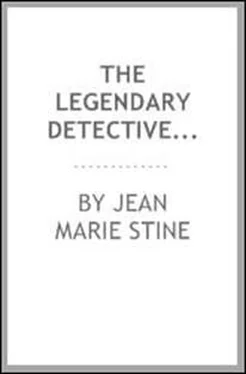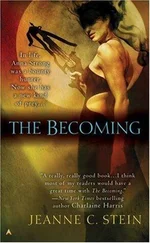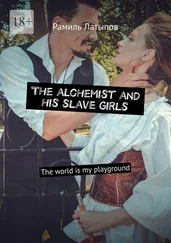Mr. Commissioner Sanders did not like visitors in the Territories. They were a responsibility, and usually he ran them up to Chubiri on the lower river (which is as safe as Bond Street and much safer than Broadway) and sent them back to the ship with a thrilling sense of having faced fearful dangers.
Bones was usually the guide on these occasions.
"On your right, dear old friends, is the village of Goguba, where there was a simply fearful massacre… shockin' old bird named N'sumu used to be chief an' the silly old josser got tight an' behaved simply scandalously. On the left, dear young miss, is the island where all these old johnnies are buried… over there's where a perfectly ghastly feller named Oofaba drowned his naughty old self…"
But the "tourist" with letters of introduction was not really welcome, though he or she had little to complain of in the matter of courtesy and loving-kindness.
"Bones, here's a job for you." Sanders looked up from the letters he was reading at breakfast. "We are getting a 'Cook' for a couple of weeks."
Bones sighed audibly.
"Not me, dear old excellency," he begged. "It's Ham's turn."
"He's an American," said Sanders.
Bones was interested.
He knew America. There was scarcely a town in the United States to which he had not written for Folder K, for Lieutenant Tibbetts was a most assiduous reader of magazine advertisements, and his touching faith in the efficacy of correspondence schools had produced his most expensive hobbies.
Sanders might not like visitors, but he had a particularly keen admiration for wholesome youth, and Donald Murdock was one of those shy and diffident boys whose appeal was instant.
He came with the most unusual credentials – a letter from the American Ambassador in London, supported by a request from Whitehall, which was a command.
"Yes – you can go as far as you like, Mr. Murdock – which I hope will be as far as I like! The country is quiet and Mr. Tibbetts will look after you."
Youth cleaves to youth: Donald took up his quarters in Bones' hut. Within five hours of their meeting (the visitor arrived by the mail boat in the afternoon) they were swopping love affairs.
"…not like any other girl, you understand, Bones. If she'd been one of those gosh-awful creatures that take up spiritualism, it wouldn't have mattered."
"I knew a girl once," mused Bones. "She was fearfully fond of me, but she played bridge. I said to her: 'My dear old lady-'"
But Donald Murdock really wasn't interested.
"When a man like me falls in love, Bones, it's for keeps. Spiritualism! Can you beat that? Ghosts and things – you don't believe in that kind of bunk?"
Here Bones hesitated.
"Dear old transatlantic cousin," he said, "you can't live in Africa and not believe, old boy."
Don Murdock stared at him incredulously.
"Spirits?"
Bones nodded.
"Dear old man from Massa – whatever the place is – ghosts? Lord bless my jolly old life, I've seen 'em!"
There were ghosts enough on the river, as these two young men were to learn.
There was a king of the N'gombi who had seven sons and the youngest of these was a weakling who had never been heard to utter a word until he was twelve, though there were tales told by huntsmen who had seen him in the forest, where he loved to prowl, of a ghost with whom he spoke at great length.
They had spied on him on nights of moon, and had heard him talk to one whom their eyes could not see, though they were trained to find the twigs which the big cat leopard had broken with his velvet paw.
Now the brothers of this boy would have put him away because of his madness, for this is the law of the N'gombi, that the mad are dead minds which are chained to the earth. But the king of the N'gombi (who was a very sick man) liked his son, who was the child of his best-loved wife, and to those who sat in family palaver on this matter of life and death he spoke with a certain ominous meaning.
"The day B'lala dies, which of you shall live?" he asked. "For if I say 'kill' a hundred spears will go against any man even if he be the king's son."
B'lala began talking at large when he was thirteen. He talked of ghosts and ju-jus and strange things that only ghosts see. Such as elephants with long hairy skin and curved tusks, and crocodiles that flew from one great tree to another, and strange beasts with enormous necks and silly spade-shaped heads. Once he said that he had lived in the world when it was quivering, boiling mud and there was nothing to be seen, no sky or stars or sun, because of the thick steam that enveloped all things.
N'kema, the eldest son of the king, on the pretext of fishing, drew his brethren to a secret conference on one of the little islands.
"It is clear to me that our father will soon die and that the madness of B'lala is his madness also. Now all men know that I shall sit in his place and be king of the N'gombi. Yet when Sandi came at the third moon to gather our taxes, he spoke evilly to me because of some girl that I stole from the Ochori folk. Now I saw with these two eyes" – he covered them both with his palms in the conventional manner – "that whilst Sandi spoke to me, B'lala stood near to him and bewitched him with his magic. Now when our father dies, let us take B'lala into the forest and put out his eyes and leave him to the beasts."
And all the brothers agreed except one who loved the boy, and even he said "Wa," keeping his objection secret.
Mr. Commissioner Sanders, in his great white house by the river's end, heard these stories and was interested. He had an overwhelming weakness for sanity, but mad folk did not irk him unless they held high posts and could in their craziness call their spears to a killing.
"It is very queer" – he puffed thoughtfully at a long cheroot – "I must take a peep at this boy on my next visit."
Captain Hamilton of the King's Houssas grinned.
"That corner of the N'gombi is rotten with madness," he said. "They had sleepy sickness badly last year-"
Sanders' headshake interrupted him.
"It isn't that kind of madness," he said. "B'lala's visions are of the world in the course of its creation and development. His talk is scientifically sound; he has even described the reptilia- 'The mammoth herds and the lizard birds,' and that isn't right. In other words, he seems to have the extraordinary power of projecting his mentality back to prehistoric times. I can see you are on the point of saying 'rubbish' – don't! I had a go of fever last night and my temper is short."
Hamilton's nose wrinkled derisively.
"Sorry, sir. Ask Bones for a solution – he's nearly imbecile himself – he may be able to interpret his brother halfwit."
He raised himself in his chair and hailed a distant figure.
"Bones!" he yelled.
Lieutenant Tibbetts, of the King's Houssas, changed direction and came stalking across the drill ground. He took the three steps of the veranda in his stride and saluted formally.
"Do you wish to see me on any regimental matter, dear old officer?" he demanded stiffly. "Personal affairs I am not prepared to discuss, but I hope, dear old sir, that I know enough about King's Regulations to be respectful, dear old tyrant-"
"Shut up," snapped Hamilton. "Anyway, you did pinch my toothpaste."
"I may have borrowed it, sir an' captain," said Bones gently, "thinkin' that you had no use for it-"
"You did take it," growled Hamilton. "I wouldn't have made a fuss about that, but you brought back a tube of brown shoe polish, and the first thing I knew – ugh!"
Bones inclined his head.
"Accidents will happen, dear old sir." He was offensively respectful. "I said to our jolly old North American friend-"
Sanders had an idea.
"Bones, take the Wiggle up to the N'gombi country – we've got to give Murdock some sort of trip, and the country is quiet just now – I'd like you to see B'lala, the son of Ufumbi the king…" He explained at length his interest in the boy.
Читать дальше












